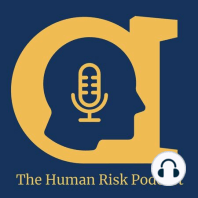1 min listen

Professor Charles Spence on Sensory Perception
Professor Charles Spence on Sensory Perception
ratings:
Length:
61 minutes
Released:
Jun 18, 2020
Format:
Podcast episode
Description
On this, the 50th episode of the podcast, I'm speaking with Professor Charles Spence who heads the Crossmodal Research Laboratory at Oxford University. He is interested in how people perceive the world around them. In particular, how our brains manage to process the information from each of our different senses (such as smell, taste, sight, hearing, and touch) to form the extraordinarily rich multisensory experiences that fill our daily lives. In our discussion, we explore how the way our food and drink is presented to us, impacts the way it tastes. I first learned of Charles' work while reading this research on wine (https://cognitiveresearchjournal.springeropen.com/articles/10.1186/s41235-020-00225-6) and we explore this in our discussion.We also touch on a range of other fascinating issues.This episode is most definitely best enjoyed with a glass of wine in hand.For more on the Crossmodal Laboratory and its research, visit their website: https://www.psy.ox.ac.uk/research/crossmodal-research-laboratory
Released:
Jun 18, 2020
Format:
Podcast episode
Titles in the series (100)
Preview: The Human Risk Podcast: Coming soon is The Human Risk podcast, looking at how Behavioural Science can help manage the biggest risk facing most organisations: people! by The Human Risk Podcast